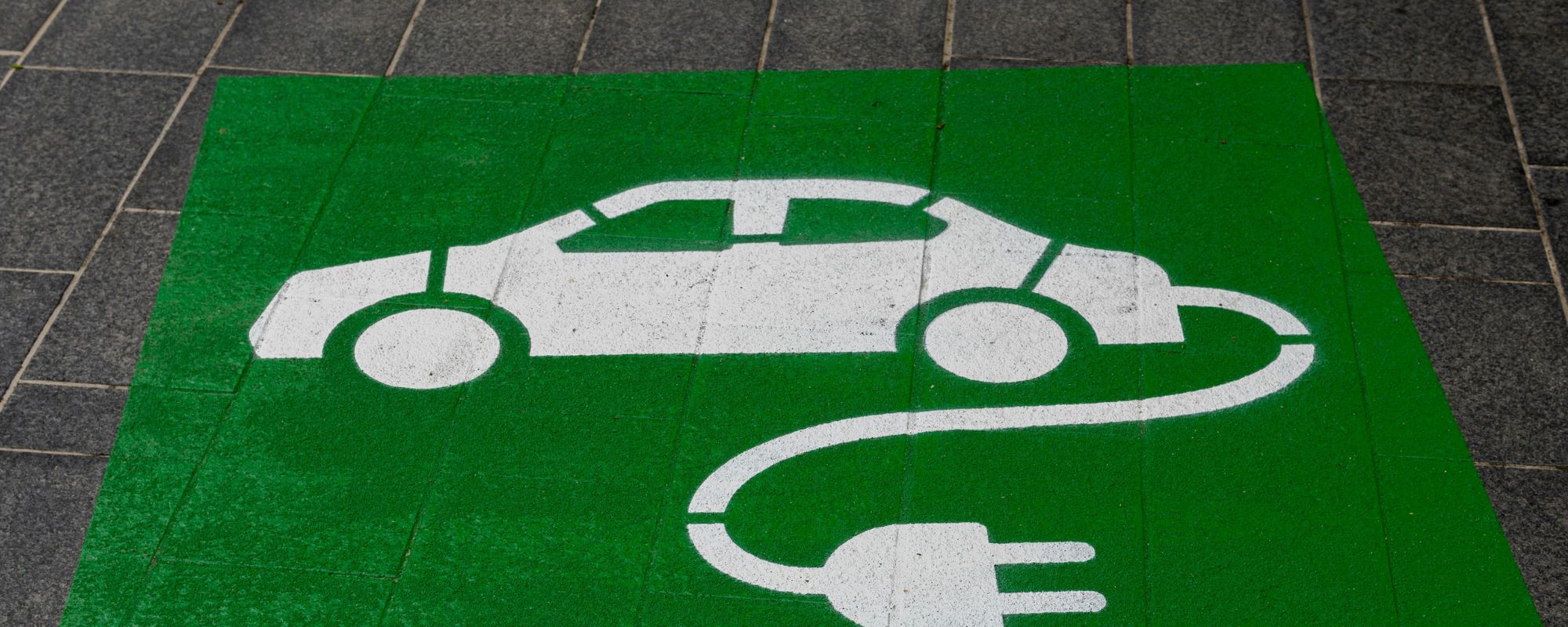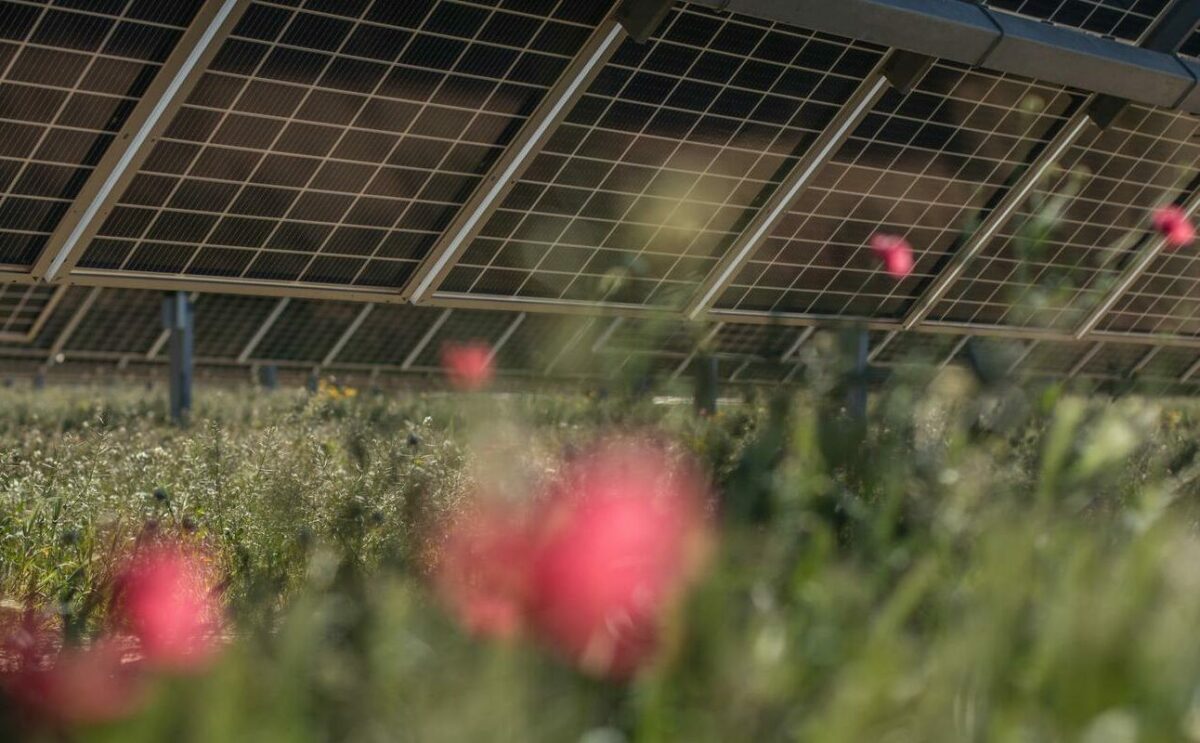Renewable energy demand is set to surge, here's four reasons why
Global demand for electricity is expected to double by 2050 compared to 2020 levels. But as the world seeks to address climate change and advance the energy transition, the way it makes and moves things around the planet is changing. We are shifting towards an increasingly electrified future.
Renewable energy has helped the electricity sector to reduce emissions. Developers, like Lightsource bp, are now working to build enough power capacity to meet both the growing electricity demand, and to replace the supply from traditional sources that are being phased out.
Factors driving renewable energy demand
Transportation: A rapid shift to electric vehicles
Transport is poised to become the largest source of growth in electricity demand. Electric vehicles (EVs) are at the forefront of this transition, with their adoption skyrocketing in recent years.
In 2022, EVs accounted for just two percent of the global automobile market. However, projections indicate a rapid shift. By 2035, it’s estimated that EVs will make up to 50 percent of all new car sales globally. That will significantly increase the need for charging infrastructure and electricity consumption.
Public transport is also electrifying rapidly with bus fleets and railways switching to electricity.
Industrial and manufacturing facilities: Electrification and green hydrogen
Investments in manufacturing and industrial facilities are expected to play a crucial role in driving electricity demand growth.
Industries such as steel, aluminium, and chemical production are transitioning towards electrification to reduce carbon emissions, further boosting electricity demand.
In many cases, green hydrogen – produced by splitting water into oxygen and hydrogen using renewable electricity – can be substituted for other fuels to produce heat. For instance, China alone is expected to undergo a 41 percent increase in industrial electricity consumption by 2035, according to research by consultancy firm McKinsey.
Data centres: Consumption doubling by 2026
The exponential growth of data centres is another key factor influencing electricity demand.
The emergence of artificial intelligence, and the global uptake of generative AI services like Chat-GPT4, Bard and Midjourney means more data centres are needed. As that data centre capacity swells, so too does the need for electricity to power and cool them.
It is expected that the energy consumption of data centres worldwide will double by 2026. That would be equivalent to the total combined electricity consumption of Japan and Germany. Solar is well placed to meet this demand given the speed of deployment and the scalable, distributed nature of solar projects.
Extreme and changing climate: Rising demand for cooling and heating
The increasing need for air conditioning, particularly in a warming world also raises electricity demand from buildings. Not just in wealthier nations, but in those with growing numbers of people with middle-incomes. It already accounts for 10 to 15 percent of energy use with that share expected to rise.
The rise and fall of solar power generation during the day in hot countries neatly matches the demand for air conditioning making it a particularly useful source of generation for this type of demand.
Demand for greater thermal comfort is not just about staying cool. In many colder geographies, heating is also being electrified by heat pumps, further increasing the need for electricity.
Meeting demand through renewable energy projects
Understanding these sources of growing electricity demand is essential for energy companies and policymakers to plan for the future and ensure a reliable and sustainable energy supply.
Solar and battery energy storage can be deployed at pace and at a range of scales. In many cases, faster permitting and the availability of modern grid infrastructure would greatly shorten those timescales.
As these four sectors transition, Lightsource bp is pushing to support governments, businesses and utilities to go faster and further. Our global reach and extensive renewables experience enables us to deliver on our substantial roster of opportunities in solar and energy storage.
As electrification impacts regions in different ways, our projects can help to keep pace with the energy transition and realise the benefits of low carbon, predictably priced renewable electricity.
Find out more
Discover how we’re working to combat climate change while meeting the world’s rising electricity demand at the power of solar.
Latest news
30 Jun, 2025
SolarPower Europe launches Global Market Outlook for Solar Power 2025-2029
Read our summary of SolarPower Europe’s Global Market Outlook for Solar Power 2025-2029.
29 May, 2025
Lightsource bp publishes 2024 Sustainability Report
Lightsource bp, a global trusted partner in delivering onshore renewable energy solutions, is pleased to publish its 2024 Sustainability Report.
02 Apr, 2025
Lightsource bp contributes to the World Economic Forum’s conversation on responsible renewables deployment practices
Lightsource bp’s Penny Laurenson, Global Head of Sustainability, contributed to WEF’s conversation and thought leadership on responsible deployment practices.




